Scientific Committee
Chair – Prof. Carl Folke
The Beijer Institute of Ecological Economics
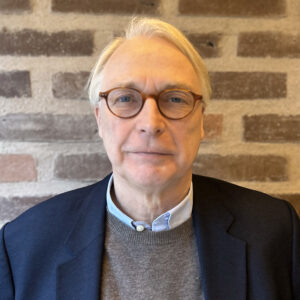
Professor Carl Folke is Director of the Beijer Institute, Founder and Chair of the Scientific Committee of the Anthropocene Laboratory, the Royal Swedish Academy of Sciences, and Founder and Chair of the Board of the Stockholm Resilience Centre, Stockholm University, Sweden. He is a systems thinker in integrative science for sustainability with a focus on social-ecological systems, resilience, and how progress, prosperity and well-being will benefit from reconnecting development to the biosphere foundation. He has a long record of science, policy, and practice collaboration, working with key actors from local landscapes to international bodies and transnational corporations, and is genuinely engaged in the arts-science interface. He is an elected member of the Royal Swedish Academy of Sciences and the U.S. National Academy of Sciences and has received international recognition, like the Planet and Humanity Medal, the Gunnerus Sustainability Science Award, and the Heineken Prize for Environmental Sciences.
Carl Folke, The Beijer Institute of Ecological Economics
Prof. Patricia Balvanera
Institute for Ecosystems and Sustainability Research, National Autonomous University of Mexico
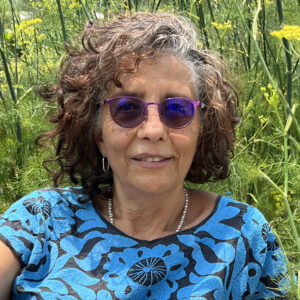
Patricia Balvanera is an ecologist (botany, ethnobotany and ecology) with a focus on the role of biodiversity for human well-being, the dynamics of social-ecological systems, the values of nature, transdisciplinary cooperation, and art. She has co-led several inter- and trans-disciplinary initiatives such as the Scientific Committee of the Program for Ecosystem Change and Society (PECS), the Ecosystem Services group of the Global Earth Observation – Biodiversity Observation Network (GEOBON-ES), the Mexican Network on Social Ecological Systems and Sustainability, and the Values Assessment of the Intergovernmental Platform on Biodiversity and Ecosystem Services (IPBES).
Patricia Balvanera, Biodiversity and human well-being lab
Patricia Balvanera, Google Scholar
Prof. Gretchen Daily
Centre for Conservation Biology, Stanford University
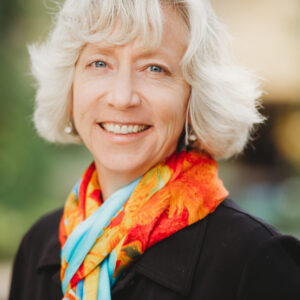 Focus on understanding human dependence and impacts on nature and the deep societal transformations needed to secure people and nature. Her work spans fundamental research and policy-oriented initiatives, working with governments, multilateral development banks, investors, businesses, farmers and ranchers, communities, and NGOs. She is the co-founder of the Stanford Natural Capital Project (NatCap), a global partnership applied in 185 nations, to integrate values of nature into planning, policy, finance, and management. Recipient of the 2020 Tyler Prize for Environmental Achievement, 2017 Blue Planet Prize, 2019 BBVA Frontiers of Knowledge Award, 2012 Volvo Environment Prize, 2010 Midori Prize for Biodiversity, and the 2009 International Cosmos Prize.
Focus on understanding human dependence and impacts on nature and the deep societal transformations needed to secure people and nature. Her work spans fundamental research and policy-oriented initiatives, working with governments, multilateral development banks, investors, businesses, farmers and ranchers, communities, and NGOs. She is the co-founder of the Stanford Natural Capital Project (NatCap), a global partnership applied in 185 nations, to integrate values of nature into planning, policy, finance, and management. Recipient of the 2020 Tyler Prize for Environmental Achievement, 2017 Blue Planet Prize, 2019 BBVA Frontiers of Knowledge Award, 2012 Volvo Environment Prize, 2010 Midori Prize for Biodiversity, and the 2009 International Cosmos Prize.
Gretchen Daily, Stanford University
Gretchen Daily, Google Scholar
Prof. Karen O’Brien
Department of Sociology and Human Geography, Oslo University
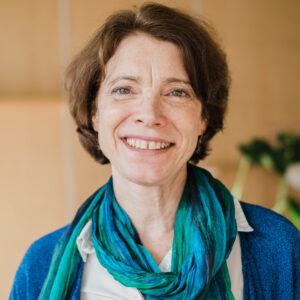
Karen O’Brien is a Professor of Human Geography at the University of Oslo, Norway. Her research on the human and social dimensions of environmental change emphasizes integrative approaches, including how beliefs, values, worldviews, and paradigms influence systems change and social change. She is particularly interested in the relationship between adaptation and transformations to sustainability, and in exploring how quantum social science can inform how we understand, engage with, and scale transformative change. Karen’s recent books include You Matter More Than You Think: Quantum Social Change for a Thriving World and Climate and Society: Transforming the Future (with Robin Leichenko). She has participated in four IPCC reports, and is currently co-chair of the International Science-Policy Platform for Biodiversity and Ecosystem Services (IPBES) transformative change assessment. She is also co-founder of cCHANGE, an organization that supports public engagement with transformations to sustainability.
Karen O’Brien, Universtiy of Oslo
Prof. Marten Scheffer
SparcS. Wageningen University
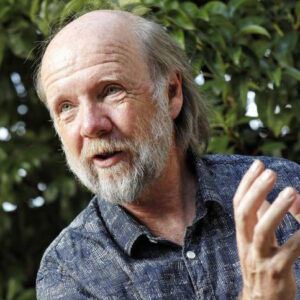 Interested in stability and change of complex systems, with extensive experience from working across scientific disciplines and with artists. Has been worked with lake ecosystems, feedback between atmospheric carbon and the earth temperature, the collapse of ancient societies, inertia and shifts in public opinion, evolutionary emergence of patterns of species similarity, the effect of climatic extremes on forest dynamics, the balance of facilitation and competition in plant communities. Recipient of the Spinoza Award and an ERC advanced grant and co-founder of the SARAS institute in Uruguay.
Interested in stability and change of complex systems, with extensive experience from working across scientific disciplines and with artists. Has been worked with lake ecosystems, feedback between atmospheric carbon and the earth temperature, the collapse of ancient societies, inertia and shifts in public opinion, evolutionary emergence of patterns of species similarity, the effect of climatic extremes on forest dynamics, the balance of facilitation and competition in plant communities. Recipient of the Spinoza Award and an ERC advanced grant and co-founder of the SARAS institute in Uruguay.
Marten Scheffer, Google Scholar
Prof. Sander Van Der Leeuw
Emeritus Professor, School of Complex Adaptive Systems, College of Global Futures, Arizona State University
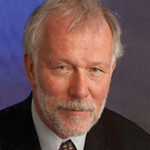 An archaeologist, historian, and author of twenty books on sustainability, he is the founding director of the School of Human Evolution & Social Change at ASU and has been its Dean of the School of Sustainability. He has served as the Director of the Complex Adaptive Systems Initiative at ASU and as Director of the ASU-Santa Fe Center for Biosocial Complex Systems. He is a Fellow of the American Association for the Advancement of Science, the Beijer Institute of Environmental Economics of the Royal Swedish Academy of Sciences, and the Research Institute of Humanity and Nature (Kyoto, Japan). He is a corresponding member of the Royal Netherlands Academy of Arts and Sciences (1995) and was awarded the “Champion of the Earth for Science and Innovation” prize by the United Nations Environment Program in 2012, and the lifetime career award of the Shanghai Archaeological Forum (Academy of Social Sciences, People’s Republic of China) in 2023.
An archaeologist, historian, and author of twenty books on sustainability, he is the founding director of the School of Human Evolution & Social Change at ASU and has been its Dean of the School of Sustainability. He has served as the Director of the Complex Adaptive Systems Initiative at ASU and as Director of the ASU-Santa Fe Center for Biosocial Complex Systems. He is a Fellow of the American Association for the Advancement of Science, the Beijer Institute of Environmental Economics of the Royal Swedish Academy of Sciences, and the Research Institute of Humanity and Nature (Kyoto, Japan). He is a corresponding member of the Royal Netherlands Academy of Arts and Sciences (1995) and was awarded the “Champion of the Earth for Science and Innovation” prize by the United Nations Environment Program in 2012, and the lifetime career award of the Shanghai Archaeological Forum (Academy of Social Sciences, People’s Republic of China) in 2023.
Sander Van Der Leeuw, Arizona State University